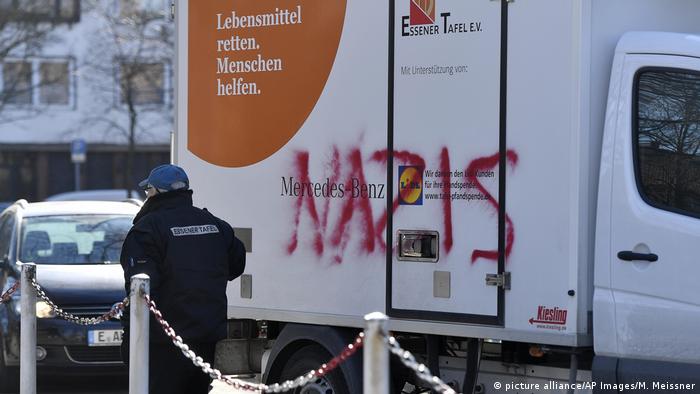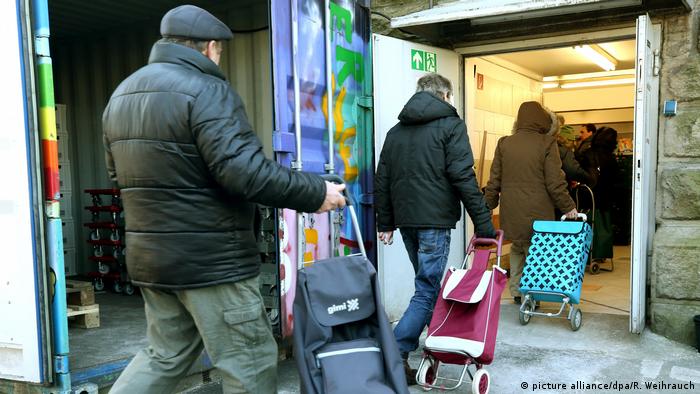Results 1 to 10 of 148
Thread: Văn hóa ăn
Threaded View
-
03-06-2018, 05:15 AM #1
Văn hóa ăn
Người Việt mình hay nói: "miếng ăn là miếng tồi tàn", ý nói không nên tranh ăn. Người ta ăn để mà sống, chứ không phải sống để mà ăn. Tuy nhiên sự việc dấy lên từ giữa tháng 2 năm nay ở một nhà tế bần thành phố Essen khiến cả quốc gia này xoay ngang bàn luận về "miếng ăn". Văn hóa ẩm thực trở thành chính trị. Chính trị hòa lẫn trong văn hóa khó lòng tách ra được.
Ông giám đốc chỗ phát chẩn thực phẩm cho người nghèo nảy sinh ý tưởng không phát thực phẩm cho người ngoại quốc nữa vì lý do số lượng hạn chế, số người đến càng nhiều. Mỗi tuần họ phải phát thức ăn cho khoảng 6 ngàn người. Người ngoại quốc ở đây đa phần chính là những người tị nạn không có quốc tịch Đức, không có thẻ căn cước.
Sau đó một tuần, một chỗ phát chẩn khác ở thủ đô Đức Berlin chỉ trích chỗ đồng sự ở thành phố Essen (Bingo, Essen tiếng Đức nghĩa là Ăn) là người kỳ thị chủng tộc. Yeap, ở đây vấn đề không xoay quanh việc "tranh ăn" mà vấn đề xoay quanh việc không phát thức ăn cho người không phải người Đức. Và cứ vậy chính trị gia vào cuộc. Hôm nay có đến 30 tổ chức phi chính phủ, tổ chức dân sự, hỗ trợ và giúp đỡ người sa cơ, người nghèo khó hội thảo ở Berlin về sự việc "chỉ phát thực phẩm cho người Đức" vừa qua. Kết luận là hành động đó là kỳ thị chủng tộc. Câu hỏi được đặt ra sau cùng lại là: Vì sao ở một quốc gia giàu có lại có thể xuất hiện quá nhiều người phải đến xin thực phẩm? Vấn đề chắc chắn chính là tiền trợ cấp không đủ sống. Viết tới đây tui chợt nhớ đến đoạn phim thời sự của đài Tiếng Nói Hoa Kỳ phỏng vấn một cơ sở phát chẩn y hệt của người Việt cho mọi người ở Mỹ. Cũng có người đồng hương của chúng ta phải cơ cực và bất đồng với chánh phủ nếu trợ cấp cứ cắt mãi (chính sách của Trump - cắt bên này, đắp bên kia).
Rốt cuộc, ẩm thực là văn hóa, truyền thống lá lành đùm lá tả tơi cũng là văn hóa. Nhưng khi gặp trở ngại thì hóa ra mọi thứ đều mang màu sắc chính trị đến dễ sợ.
Nguyên văn bài báo tường trình vụ tạm thời không phát thực phẩm cho người ngoại quốc:
Small German food bank in Essen thrust into national racism spotlight
A food bank that provides groceries to about 6,000 people decided to stop issuing membership cards to foreigners. Now it's at the center of a heated national debate, and even Chancellor Merkel has an opinion.

A small NGO in the western German city of Essen has become a flashpoint for the ongoing national debate over xenophobia, migration and poverty. The controversy surrounding the local food bank, or "Tafel," has become so heated that even Chancellor Angela Merkel weighed in on Tuesday — slamming the decision some say is the result of her government's policies.
In December, the food bank, which gives leftover food from supermarkets and restaurants to about 6,000 needy people a week, decided to stop issuing new membership cards to people who weren't German citizens.
When local media caught wind of the move last week, it prompted a national outcry, with many of the organization's critics accusing it of focusing on country of origin instead of the level of need. A French single mother told DW that she had been turned away at the door.

The Essen Tafel is one of 930 non-governmental food banks around Germany, around 75 percent of its members are foreigners
National uproar
Manager Jörg Sartor said at a press conference last Thursday that he "didn't understand all the excitement." He said that his decision was based on reports of "pushing and shoving," that frightened off the elderly and stretched the food bank's resources. He stressed that the Tafel was not xenophobic, and that the restriction was only temporary.
Sartor hoped that would be that — but over the weekend, six of the food bank's delivery vans and one of its entrances were graffitied with the phrase "F*** Nazis." The manager dismissed the vandalism as "kid stuff," but said he was also worried it would make his volunteers too scared to come to their shifts.
Soon federal lawmakers began to offer their own views of the situation. Left Party leader Sahra Wagenknecht blamed the government for forcing small nonprofits to bear the costs of its poor planning during the refugee crisis.
In an interview with Deutschlandfunk radio, Wagenknecht asked why "in a country as rich as Germany are we arguing about who gets leftover groceries?"
Expert: Government cutbacks to blame
When Chancellor Merkel was asked about the food bank hubbub by broadcaster RTL on Tuesday, she said it "wasn't good" for the Tafel to hand out membership cards based on citizenship, but said that the situation highlighted "the pressure that [nonprofits] are facing."
But it is government policy that is responsible for this pressure, poverty expert Dr. Christoph Butterwege told DW.
"The main thing here is the successive cutbacks of the social welfare system," said Butterwegge. "We're seeing the results of that here."
When asked if it was possible to understand the food bank's decision without immediately being smeared as a "Nazi," Butterwege said "well, the whole thing does have hints of racism. Nationality cannot be a selection criterion for food aid."
However, Butterwegge added, making sure no one goes hungry in Germany is "actually the government's responsibility."
Butterwegge's point was bolstered by a new study published on Tuesday that said the unemployed in Germany were more at risk of sinking below the poverty line that any other EU country.
At a meeting of the food bank's leadership on Tuesday, they decided to keep the rule for now. However, they said that within the next two weeks they will hold a roundtable with lawmakers and community leaders in order to gather suggestions for other ways to handle the problems the Tafel is facing.
Additional reporting by Carla Bleiker and Marko Langer
(* nguồn: http://www.dw.com/en/small-german-fo...ght/a-42763358 )

 Puck Futin
Puck Futin








 Reply With Quote
Reply With Quote